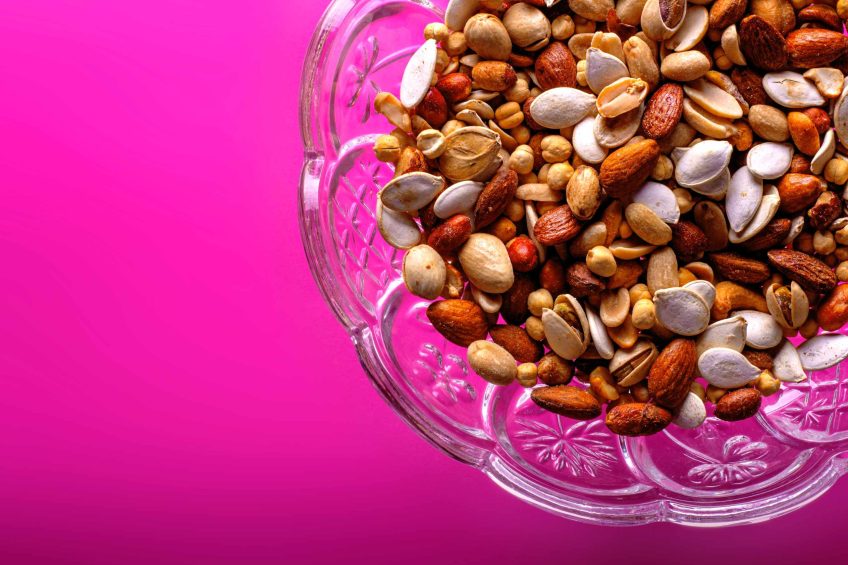If you’re tired and depressed, it could be due to a deficiency in your diet. Nutrient deficiencies are often the result of not eating enough whole foods. This article will explain in depth the deficiencies.
Table of Contents
Why do we get tired?
Here are some of the most common reasons why we get tired.
Not enough sleep
Sleep is the most critical thing for energy. Without it, our body’s ability to make energy from food is significantly reduced. Sleep also contains hormones that help our body create energy to wake up the following day. Studies have shown that people who sleep between 7 and 8 hours each night are less likely to be tired and more likely to be productive.
Hormonal disbalance
Hormonal disbalance can be caused by stress, over-training, or in some cases, nutrient deficiencies. When our hormones are unbalanced, we often experience highs and lows in energy levels. This makes us have trouble concentrating and feeling fatigued and may sometimes cause us to oversleep. According to data from the hormonal clinic Medzone, people with low cortisol levels are more likely to be tired, depressed, and deprived. Cortisol is a hormone released during increased stress or when we exercise. Excess cortisol makes us tired and depressed and decreases our drive to exercise.
Chronic stress
When we are stressed, our body releases cortisol. Cortisol activates the sympathetic nervous system, responsible for the “fight or flight” response. This means our body needs to send blood away from digestion and into the muscles. A prolonged sympathetic nervous system response can cause gastric ulcers, increased blood pressure, high blood sugar levels, fatigue, and an inability to concentrate. The best way to combat chronic stress is to take time every day. As simple as it sounds, do something daily that makes you happy and de-stressed.
Poor nutrition
Eating a poor diet can cause fatigue, brain fog, mood swings, depression, and tiredness for several reasons, including nutrient deficiencies. A poor diet can be detrimental to our health and make it difficult to lose weight. It may also be that our bodies need more nutrients than we get from the food we eat. In these cases, supplements can be a great option to boost our energy levels.
Which Nutrient Deficiency Causes Fatigue?
Here are the most common nutrient deficiencies that cause fatigue and depression.
Vitamin B12
Vitamin B12 is one of the essential nutrients for energy production. Vitamin B12 deficiency can lead to pernicious anemia- a disorder where red blood cells are destroyed faster than they can be replaced. This can lead to fatigue, brain fog, and an inability to concentrate. A study found that people with low vitamin B12 are more likely to suffer depression. The best sources of vitamin B12 include sardines, salmon, and eggs. If you feel tired and chronically fatigued, you may want to ask your doctor for a blood test. If the test does show a deficiency, it is recommended to take a vitamin B12 supplement. The recommended dosage is 1-2000 mcg per day.
Vitamin B9
Vitamin B9, known as folic acid, is required to convert homocysteine to methionine, allowing a healthy nervous system to function normally. People with low levels of this vitamin are more likely to suffer from depression and attention deficits. The best sources of vitamin B9 include fortified cereals, fruits, and vegetables. Vegans, vegetarians, and people with low intakes may benefit from taking a vitamin B9 supplement if they feel tired and depressed. The recommended dosage is 400 mcg per day.
Iron
Iron is essential for transporting oxygen to every cell in our body. It is also required for red blood cells to produce energy. People with low levels of iron are more likely to suffer from fatigue, irregular heartbeats, and depression. The best sources of iron include cereals, lean meats, dark green leafy vegetables, eggs, and nuts. If you feel tired and chronically fatigued, you may want to ask your doctor for a blood test if you suffer from a lack of iron or anemia. The recommended dosage is 18 mg per day.
Thiamine
Thiamine is required to produce serotonin, dopamine, and norepinephrine – neurotransmitters that govern our mood. A thiamine deficiency can lead to mental disorders such as depression and impulsive behavior. The best sources of thiamine are meats, fish, eggs, dairy, and some fruits and vegetables. If you feel tired, depressed, or have a food addiction, you may want to ask your doctor for a thiamine test. The recommended dosage is between 100-200 mg per day.
Magnesium
Magnesium is required for the production of energy and to transport oxygen throughout our bodies. It is also necessary for the increase in testosterone needed for energy production. A magnesium deficiency can lead to muscle weakness, depression, fatigue, and insomnia. The best sources of magnesium include meats, fish, and whole grains (wheat). If you feel tired or chronically fatigued, you may want to ask your doctor for a magnesium test. The recommended dosage is 400-600 mg per day.
In conclusion, there are many different reasons why you could feel tired and depressed. The key is to identify which one applies to you and try fixing it. Start with small lifestyle changes, focus on a healthy diet and get enough sleep. If your problem persists, consider seeing a doctor who can recommend dietary changes and supplements for your specific deficiencies. This will provide the boost you need to live a happier and healthier life and help you overcome that feeling of exhaustion and any symptoms of depression.
Hello, I am a professional writer, with more than 10 years of writing experience. I love to write on the science related subjects and share knowledge with my readers. I hope all my reader friends will enjoy my work.







